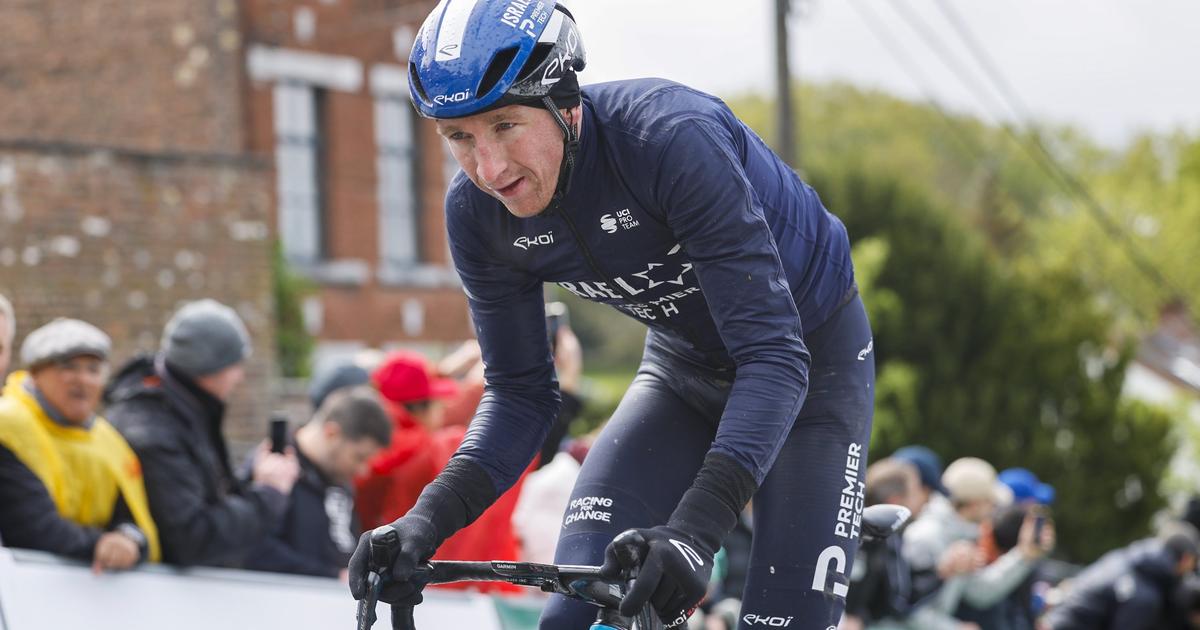On the video posted at the beginning of March and already seen several hundred thousand times, Philippe Rozier has tears in his eyes.
Rahotep of Tuscany, the gray stallion with whom he became Olympic team show jumping champion in 2016 is dying.
In Bois-le-Roi (Seine-et-Marne), the last of the four gold medalist horses in Rio still in activity is in solitary confinement, weak, locked between bales of straw and watched 24 hours a day.
“This horse is my whole life,” worries the Olympic champion.
In a neighboring stable, the image hurts: a mare has to be lifted off the ground with the help of a crane.
Its limbs are paralyzed.
Like many other equines since the end of February, Rahotep and the pretty mare have caught a virus, not transmissible to humans: EHV-1, better known under the name of rhinopneumonia.
Outbreaks of this virulent and aggressive virus have already been confirmed (as of March 8) in Hérault, Haute-Savoie, Seine-et-Marne and Calvados.
40 high-level stables have already been impacted.
Less subject to mixtures of horses, equestrian leisure centers are not yet affected but remain vigilant.
Abroad, cases have been detected in Belgium, England, Germany and Spain.
But the transmission is rampant.
The viral outbreak appeared in Spain
Rhinopneumonia is a disease well known to the equestrian world.
It is usually benign but this strain wreaks terrible havoc.
The international equestrian sports federation calls it "the most serious epidemic in Europe for decades".
To fight against its spread, the French federation has banned all gatherings, competitions and equestrian courses at least until the end of March.
Horses have already died in Spain, where the contamination appeared at the end of February.
Rahotep, the Olympic champion, caught her in an international competition in Valencia that brought together over 700 horses.
But no one knew at the time that the virus was sneakily hiding there.
Let us recall in passing that despite the Covid and at the cost of drastic health protocols, the competitions of international riders outside can take place.
#Health #horse 🦠 Equine rhinopneumonia epidemic 🦠
Sophie Dubourg: "We are asking for the
immediate medical
repatriation
of our horses"
➡️ Find the press release 👉 https://t.co/RyBFng3aLG
© ADS_countrylens pic.twitter.com/6VN0gNo03o
- FF Equitation (@FFEquitation) March 3, 2021
Very contagious and dangerous, rhinopneumonia is a herpes virus which, like chickenpox or shingles in humans, is very contagious.
It spreads like the Covid, through the airways, for example when two horses touch their noses, which happens frequently.
The virus can drive horses mad
The disease results in fever - the temperature in horses can rise to 40 ° C - breathing problems, difficulty urinating or defecating, and especially general weakness.
The strain is neuropathogenic.
This means that it affects the nervous system of the horse which can no longer stand.
However, a horse that remains lying down for more than 6 hours crushes its muscles and can no longer get up.
It is for this reason that it is often said that horses sleep standing up, which is not true.
In the most serious cases, they can just go crazy!
“It's very, very serious, deplores the Lorraine rider Simon Delestre, the former world number 1 in show jumping in the columns of the Lorraine Republican.
Usually the rhino is serious, but there is a hard form which develops.
This endangers the health of the horses, or even kills them.
"
No death in France, but ...
In France, as of March 8, no horse deaths have been reported.
But the spread of the virus makes everyone tremble.
Like the Covid for humans, the best way to curb the epidemic is to vaccinate horses.
But it seems that the vaccine developed is not very effective against this strain.
The other way is the same as for men: maintain social distancing and isolate horses.
The last is the total disinfection of stables, already implemented in regions where outbreaks are detected.
While horses cannot transmit the virus to humans, the reverse is possible through clothing, dung under boots or truck wheels.
It is a fight against a new invisible enemy waged by the riders already severely impacted for a year by the Covid.
Morning essentials newsletter
A tour of the news to start the day
Subscribe to the newsletterAll newsletters
And it is not over: the epidemic is only in these early stages as the Tokyo Games loom in a few months.
If the epidemic is not brought under control by then, equestrian events in Japan will be in great danger.
And Rahotep?
Last I heard, after 4 complicated days and nights, he is getting better.
The Olympic champion, still weak, was able to take a few steps on Sunday.
“Be careful and take care of your horses,” sighs Philippe Rozier, still worried.









/cloudfront-eu-central-1.images.arcpublishing.com/prisa/SIL73HWCGXKSZBZRANYT36EZLI.jpg)

/cloudfront-eu-central-1.images.arcpublishing.com/prisa/RBFQGNGZ3QEU4FY4QMSDJQHSQA.jpg)